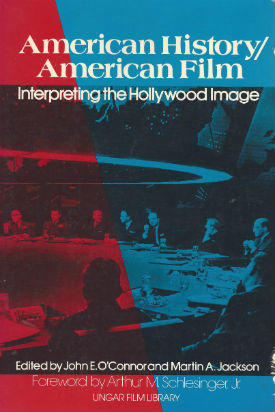Superman, Superheroes and Messiah Figures
By Neil Earle
 Good over Evil still predominates at the movies.
Good over Evil still predominates at the movies.Are we really that old? Apparently, because Superman is 80 years old this year after his now-famous appearance on the Action Comics cover of 1938. The caped Kryptonian gave our peer groups so many enjoyable hours as keen 11-year olds thumbing through Dell’s products to while away long summer days (sigh!) or trading our beloved comics at the local movie house.
Ah, yes, the dreamy days of youth.
But even the Times of India wrote “the Man of Steel is here to stay!”
Superheroes and Messiah Figures
All of which raises some interesting points about the present Superhero craze at the Cineplex that seems to keep dodging the bullets of serious critics.
Why might this be? Consider this: In the 2006 remake “Superman Returns” Lois Lane (Kate Bosworth) tells her former crush: “I don’t think this world needs Superman. This world doesn’t need a Savior.”
Later on, suspended high over Metropolis, Superman (Brandon Routh) tells Lois quite feelingly something like, “I can hear people every day. They need a Savior.”
Pastor-journalists such as myself might seize upon this as a chance to pontificate, even if I am still partial to the 1978 Christopher Reeve version where the early details are so convincing, set as they are in breathtakingly beautiful rural Alberta.
Test the Spirits
Bewildered particle physicists now throw up their hands in trying to trace down the essential building blocks of matter. It may well be that the spiritual will be found to be at the root of everything, rounding out Grant Harrison’s insight that the spiritual is indeed all around us. REDEMPTION? Film serves more than one pupose in today's educational system.
REDEMPTION? Film serves more than one pupose in today's educational system.“Evil is always broadcasting” one culture critic used to say and we have to get off its frequency. The Bible is still the best guide here, an antidote to being on the wrong wave length. The Bible itself has lots of violence, bad examples, massacres and blood baths but in the end its message is upbeat and affirming. It holds out a spiritual kingdom, the Kingdom of God, as the ultimate point of human striving. “Test all things, hold fast to the good” is one of its prime watchwords.
So what to think about as we stand outside the local cineplex? The Bible is not bashful about the answer: “Finally, brothers, whatever is true, whatever is honorable, whatever is just, whatever is pure, whatever is lovely, whatever is commendable, if there is any excellence, if there is anything worthy of praise, think about these things…and the God of peace will be with you” (Philippians 4:8-9).
Without being priggish or a prude and allowing for personal preferences, there is plenty of scope here for living the more abundant life.
Parallels…or Not
No, as a longtime Superman fan from those magical DC Comics days of the 1950s I am not surprised when I hear such dialogue in a movie. Fact is, a fellow student and I almost offended a group of over-serious British colleagues at a seminary one day when we jokingly pointed out some after-dinner parallels between the Gospel and the Man of Steel. We were on a roll:
- an alien being from far away to save us all
- a father (Jor-el) with “el” in his name, the Hebrew word for God (perhaps tracing to a term original Jewish creators Seigel and Schuster heard in synagogue)
- the double identity, “meek” Clark Kent able to take on super powers at any given time, paralleling perhaps the humble carpenter from Nazareth working miracles quite effortlessly
- the evil, relentless enemy, Lex Luthor, an echo of Satan with his Kryptonite a stand-in for temptation and sin, etc. etc.
You don’t have to be a genius to continue the set.
This is why I was amused when a Christian book appeared in the late 1970s, “The Gospel According to Superman.” I couldn’t help but chuckle: “They beat me to it!”
A Lurking Spiritual Agenda?
In The Power of Myth Harvard scholar Joseph Campbell offered that there is more to mass culture’s winning imaginative epics than just high production values. Star Wars, for Campbell, “came along at a time (the stagflated late 1970s) when people needed to see in recognizable images the clash of good and evil. They needed to be reminded of idealism, to see a romance based upon selflessness rather than selfishness.”
Grant Morrison, a graphics novel superstar (graphic novels being the hyped up heirs of our 50s standards), added that superhero movies “are flourishing everywhere because they are a bright flickering sign of our need to move on, to imagine the better, more just, and more proactive people we can be.” He adds, “If our shallow, self-critical culture sometimes seems to lack a sense of the numinous or spiritual, it’s only in the same way a fish lacks a sense of the ocean. Because the numinous is everywhere, we need to be reminded of it. We live among wonders” (Supergods: Our World in the Age of the Superhero, pages 414-415).
Hmm. The spiritual is everywhere?
Digging Deeper
But wait – Isn’t pop culture a lost cause? Vast acres of it certainly seem to be. My wife and I have experienced burnout with the latest iterations flooding the movie screens. But it is possible in the light of creative stars such as Grant Morrison’s comments to reflect a bit more deeply. For starters, what are the differences between pop culture creations (Superman is a classic) and the recognized artifacts of what we call high culture (The Great Gatsby, Beethoven’s Fifth Symphony)?
One main difference, the experts say, is that high culture explores and reworks essential human archetypes – i.e. similar patterns of behavior that all humans share in to a certain degree. It is teaching without preaching, often covering worthwhile lessons for us to ponder (Gatsby’s money couldn’t buy him what he wanted; the ominous opening of the Ninth relentlessly moves to a happier theme). By contrast, pop culture deals in overworked stereotypes, say the critics. Stereotypes are boringly predictable stock moments and characters and situations that soon leave us feeling less elevated than we would if we read Plato or Walt Whitman.
Thus Marilyn Monroe is Madonna is Lady Gaga in endless repetition. “Gatsby” makes the high school reading list but not “In Cold Blood.” At least not yet. Or so goes the theory.
Thus pop culture is often considered “mental junk food” while high culture is the real thing, a beef steak, nourishing to the spirit.
Pop culture, we are told, boringly reworks the “same old/same old;” high culture supposedly surprises us with unexpected depths and insights: It’s “Huckleberry Finn vs. “The Young and the Restless.”
Admittedly Superman is a classic exemplar of pop culture. Yet even pop culture can touch on some universal and enduring themes on more than one occasion. Superficial as it may seem, the fact is we are all looking for a Savior. A thousand websites could attest to this. The November elections will rework this in miniature. As a Christian journalist I could use this point as a launching pad for a sermon on Christ and his saving grace. And I’m not knocking that, just moving beyond it to say, let’s study the audience and their interests first of all. Karl Barth, acknowledged as the 20th Century’s leading theologian, said pastors must be students of the Bible…and the culture!
Hero figures still sell. People at theaters vote with their wallets. Even people who deprecate the movies are showing by their negative attnetion that the movies still matter. So it’s sometimes better to light a candle than curse the darkness. Something inside us will shell out money for a tale where genuine goodness exists and where self-sacrifice wins in the end.
Bill Moyers asked Joseph Campbell a key question on his 1980s television series, “The Power of Myth.” In an almost unguarded response, Campbell answered candidly as to why the same stories keep repeating. Why do tales of heroism and nobility endure, that striving and self-sacrifice, trying to rescue the damsel, the city, the tribe, the group. His answer was unhesitating: “Because these are the only themes worth writing about.”
The Master Text
The Christian writer and thinker C.S. Lewis once advanced a similar concept. With Christianity, Lewis argued, the Myth became Fact. What human beings have always longed for, have always hoped for, still yearn and even pray for is this: the possibility of meaning to our lives, the search for a person or even a story of a person who is on our side, a reaffirmation that the universe is not cold and apathetic but that love and caring and purpose exists at its core.
That, said Lewis, to a radio audience huddled in their shelters struggling against the grim reality of World War Two, is precisely what the Gospel is all about. It is the central story of our existence, the Master Text of our culture, the One True Story on which all the others are imaginative replicas. Or, in the words of 2 Timothy 1: 9-19, we need the caring God “who has saved us and called us with a holy calling…which was given to us in Christ Jesus before time began, but has now been revealed by the appearing of our Savior Jesus Christ, who has abolished death and brought life and immortality to light through the Gospel.”
There it is. The ultimate happy ending! In the Gospel account, says Lewis, the Myth became fact and dwelt among us, and we beheld its glory. No wonder the human imagination keeps reinventing almost to the point of trivializing this Hero Story. But it endures, as the ultimate sign and pointer to what the mass culture is still crying out for if unknown to itself.
(Retired pastor Neil Earle has friends in the Hollywood Prayer Network and is author of The Wonderful Wizard of Oz in American Popular Culture.)